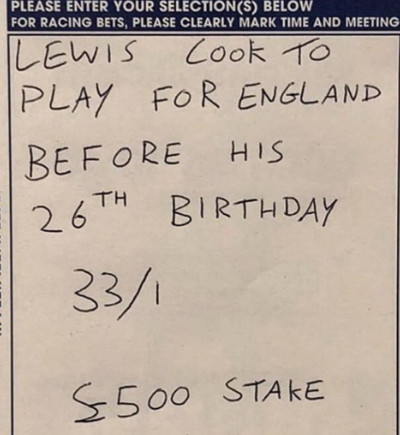 Do an internet search for kids and betting and among the first things that will come up are stories about young people have gambling problems. Dig a little deeper, however, and you can discover a rather more interesting world of families who have had such confidence in their children being successful in their chosen field that they’ve placed a bet on them, only to see that bet come to fruition years later.
Do an internet search for kids and betting and among the first things that will come up are stories about young people have gambling problems. Dig a little deeper, however, and you can discover a rather more interesting world of families who have had such confidence in their children being successful in their chosen field that they’ve placed a bet on them, only to see that bet come to fruition years later.
None of which is to be dismissive of the importance and seriousness of young people becoming problem gamblers, of course, but that is something that we’ve covered elsewhere.
Betting on things happening in the future isn’t a new phenomenon, obviously. Just after the turn of the millennium a man named Nick Newlife placed a £1,520 bet on Roger Federer winning seven Wimbledon titles by 2019, netting more than £100,000 in winnings thanks to the 66/1 odds he received from William Hill.
The bet was so far in advance that Mr Newlife sadly died before seeing it come to fruition, resulting in the charity Oxfam receiving the betting slip in his will. Whilst that might be unusual, it reflected Newlife’s faith in Federer’s playing skills when what we’re looking at here is a parent having unwavering faith in their children to the extent that they were willing to put their money where their mouth is.
How Common Is It & How Are Odds Decided?
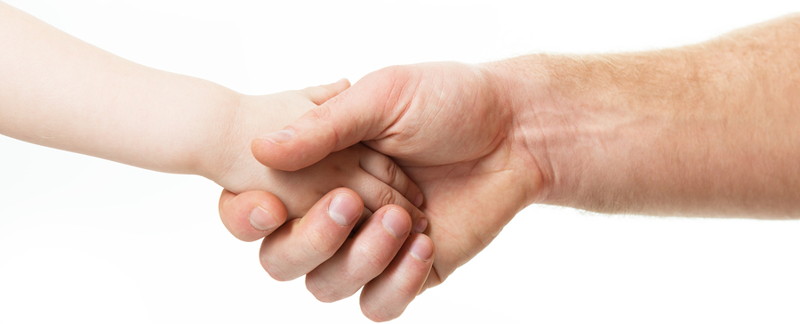
The success stories obviously make the news, but the bookmakers are more than happy with that because it means that more parents with grandiose plans for their kids will contact them to place bets on them being successful in the future. Ladbrokes said in 2012 that bets placed by parents on the likelihood of their offspring doing well in the future had increased tenfold over the previous five years. Jessica Bridge, a spokesperson for the betting company, said that bets placed on children being successful in the future was as popular a wager type as betting on the final of shows like the X-Factor.
According to Bridge, the betting firm receives ‘thousands’ of bets on children every year. They look at each case on an individual basis before making a decision on what odds to offer. Looking at the likes of family history to see if any previous family members have been successful in any given field as well as the school that the child attends, bookmakers then come up with suitable odds. Graham Sharpe of William Hill says that bookies actually prefer it when the children are only a couple of years old as it feels safe to offer long odds. Sharpe also pointed out that there can be a variety of reasons why parents approach bookmakers to ask for odds on them doing something as significant as playing for England and as minor as passing an exam.
The most common bet received by William Hill from family members betting on their youngster is between £20 and £25, with bets rarely going over the £100 mark. Generally speaking bookies are quite happy with people wanting to place bets on their children because the coaching in the UK is so good that if the child had genuine talent then the chances are that they’d already be enrolled in one of the systems in place. That allows them to mitigate their risk, knowing that the chance is increased that they’ll be successful when compared to a ‘normal’ child who isn’t in the various training systems. Bets are normally placed by going into actual betting shops, though nowadays the Request-A-Bet systems employed by most bookies is also useful for it.
How To Place A Bet On Your Children
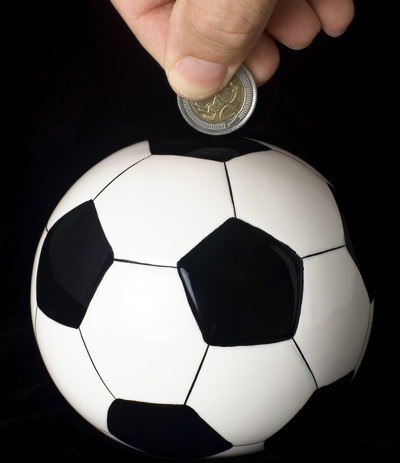 You won’t be able to go online and find a market for betting on your kids but most big bookies will offer you odds if you get in touch with them, either through twitter, phone, email or by going into a betting shop.
You won’t be able to go online and find a market for betting on your kids but most big bookies will offer you odds if you get in touch with them, either through twitter, phone, email or by going into a betting shop.
Bear in mind you will probably not receive a price straight away as the bookie will first send the proposal to trained odds traders who will determine if they wish to offer you odds and what the price will be.
Smaller companies are less likely to offer this service as they mostly will not have the traders or experience needed to price the market, although there is no harm in trying. In general though you are best off choosing the big brands, such as Bet365, William Hill, Ladbrokes, Coral, Betfred, BetVictor, Betfair, Unibet and Paddy Power. It is also safer to use an established bookie as it is likely the bet will not pay out for many years and you want to be sure the operator is still around if your wildest dreams do come true.
You will need to provide evidence of who the child is you want to bet on and exactly what it is you are predicting. The more evidence you have the easier and quicker it will be to get a price, the more information you give the more likely you will get better odds too, as traders err on the side of caution naturally. Here are some basic pointers for placing a wager on a child’s future achievements:
- Be very clear with a simple objective, e.g. ‘my son or daughter to play for the England national senior football team’. Try not to string scenarios together, as you will getting worse overall odds, it is better to place separate bets.
- Offer as much relevant information as you can, e.g. family history in the area you are betting on, this will make it less likely they can void bets later on a technicality.
- You can always try to negotiate a price once it comes through, especially if you plan to place a fairly big bet or series of bets.
- Contact multiple bookies and get several prices, just as you would if you were getting a quote from anything else.
- Keep a copy of your bet in a secure place, if it is a particularly big or valuable bet ensure it is included in your estate, in case you are not around to collect it.
- The younger the child is the better in terms of odds, if you child is already a good singer or dancer and you want to bet on them winning X-factor the odds will of course be worse than if you bet on that same person as a baby.
- Consider a series of incremental bets, e.g. rather than just betting on your kid to play for England you could place a bet on them to play for a Premier League club and then a separate bet on them to play for England, this way if the become a top level professional but don’t get a call up you still will win something.
- Notify the bookmaker if anything changes in advance, e.g. if the child goes on to change their name or gender make sure the bookie knows this before the bet settles.
- Read and take a copy of the general betting terms for the operator at the time the bet is places to avoid complications later down the line if a bookie tries to void your bet.
High Profile Bets On Children That Paid Off
Eddie Kirkland Bets On His Son Chris
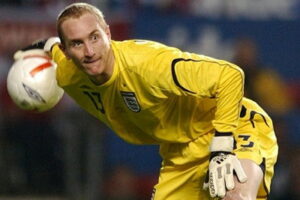 For football fans, especially in the modern era, it must be the dream to see their children grow up to be professionals. The sheer amount of money in the sport, with even mediocre players being paid tens of thousands of pounds a week, means that your child making it in the Premier League allows your family to be set for life; presuming that they’re willing to share their riches with you, of course. In the case of the Kirkland family, they noticed early on that their son Chris was a talented goalkeeper, combining the ‘right attitude’ with his natural talent.
For football fans, especially in the modern era, it must be the dream to see their children grow up to be professionals. The sheer amount of money in the sport, with even mediocre players being paid tens of thousands of pounds a week, means that your child making it in the Premier League allows your family to be set for life; presuming that they’re willing to share their riches with you, of course. In the case of the Kirkland family, they noticed early on that their son Chris was a talented goalkeeper, combining the ‘right attitude’ with his natural talent.
As a consequence, Eddie Kirkland and some friends clubbed together and put a bet of just shy of £100 on Chris earning an England cap before the age of 30, being offered odds of 100/1 by William Hill. They must have felt that their bet was heading in the right direction when the Leicester-born goalkeeper signed for Liverpool in 2001, but when things didn’t work out for him at Anfield and he was shipped off to Wigan on loan they must have feared the worst. They need not have worried, however, as Kirkland’s performances for the Latics earning him an England call up.
It came during a friendly between the 3 Lions and Greece in the August of 2006. As it was a friendly the managers could make more substitutions than during a competitive match, which worked out perfectly for the young Kirkland. The match, which was hosted at Old Trafford rather than Wembley Stadium, was one of Steve McClaren’s first as manager and the England boss chose to replace Paul Robinson with Kirkland at half-time.
The goalkeeper was relieved, having described the bet as ‘the bane of my life’ when speaking to the BBC about the bet prior to the match. His family, who netted £9,908.10 because of the bet, were lucky as it was the only appearance for England that Kirkland managed.
Ryan Tunnicliffe Gets United Debut To Earn Dad £10,000
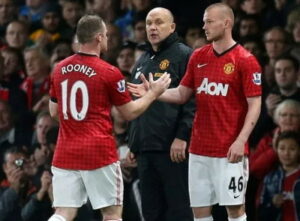 When Ryan Tunnicliffe ran on as a substitute for Manchester United in their Capital One Cup 3rd round match against Newcastle United, it was an extremely proud moment for his family. After all, not every player gets to run out for the Red Devils, let alone as a substitute for Wayne Rooney. Yet that’s exactly what happened to Tunnicliffe when Alex Ferguson sent him out to replace the former Everton player with just over 10 minutes of the match remaining.
When Ryan Tunnicliffe ran on as a substitute for Manchester United in their Capital One Cup 3rd round match against Newcastle United, it was an extremely proud moment for his family. After all, not every player gets to run out for the Red Devils, let alone as a substitute for Wayne Rooney. Yet that’s exactly what happened to Tunnicliffe when Alex Ferguson sent him out to replace the former Everton player with just over 10 minutes of the match remaining.
Yet the appearance will also have delighted the Tunnicliffe family for financial reasons as his dad, Mick, had placed a £100 bet on him making an appearance for Manchester United at some point in his life when he was just 9-years-old. He was offered odds of 100/1, meaning that he banked £10,000 when the substitution was made. Once again it was William Hill that had to make the payout, largely because they were one of the bookmakers with the biggest high street presence at the time of the bet, making it easier for Mick Tunnicliffe to request the odds.
The bookie must have been fearing the worst when they made the payout, given that Mick had also placed a £100 bet with odds of 350/1 that Ryan would appear for England during his footballing career, meaning that there was a £35,000 payout heading his way if the 3 Lions did indeed select him at some point in the future. He made international appearances for England at Under-16 and Under-17 levels, but after failing to make a league appearance for the Red Devils he was eventually sold to Fulham before heading to Millwall and then Luton Town, meaning William Hill avoided two monster payouts over the same player.
Harry Wilson’s Grandad Wins Six-Figure Bet
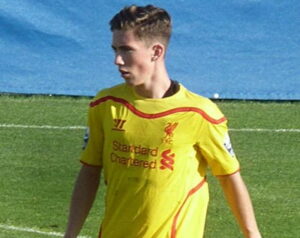 The final football wager worth telling you about involves the then-Liverpool youth player Harry Wilson, whose grandad placed a £50 bet on his infant grandson playing senior football for Wales back in 2000. Wilson was just 3-years-old at the time that Peter Edwards entered the Wrexham branch of William Hill and placed his wager, being offered odds of 2,500/1 for his trouble.
The final football wager worth telling you about involves the then-Liverpool youth player Harry Wilson, whose grandad placed a £50 bet on his infant grandson playing senior football for Wales back in 2000. Wilson was just 3-years-old at the time that Peter Edwards entered the Wrexham branch of William Hill and placed his wager, being offered odds of 2,500/1 for his trouble.
Wilson was called up to the Wales team for their World Cup qualifying match against Belgium, which his grandad watched on an iPad in his caravan in Buckinghamshire with his wife Dorothy. An electrical contractor from Corwen, Clwyd in North Wales, Edwards worked away from home most of the year and decided when the bet came in that he would retire with immediate effect, having won £125,000 thanks to a bet he placed on a whim when he noticed that Wilson liked to kick a football as a toddler.
It wasn’t just his grandad that benefited from the bet. Wilson made history himself when he became the youngest ever player to appear for Wales when he replaced Hal Robson-Kanu with 3 minutes of normal time remaining. The previous youngest player had been Gareth Bale, but Wilson was 108 days younger than him when Chris Coleman sent him on, having called him up after being impressed by his performances for the Under-17s. Edwards had wanted to put another bet on him Wilson enrolled with the Liverpool Academy at the age of 12, but William Hill refused the wager.
10-Year Bet On Rory McIlroy Pays Out
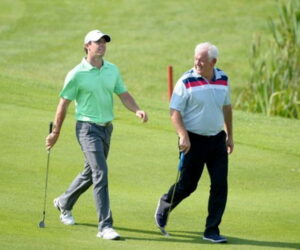 It’s not just football that family members have faith their young ones are likely to do well in, with Rory McIlroy’s victory in the the British Open in 2014 seeing his dad and his dad’s friends take home around £180,000. Gerry McIlroy was so impressed with his son’s golf swing as a 15-year-old that he and his friends worked together to put a bet of £200 on in 2004 that the Northern Irishman would win the Major within the next decade, with a second £200 bet placed the following year predicting the same thing.
It’s not just football that family members have faith their young ones are likely to do well in, with Rory McIlroy’s victory in the the British Open in 2014 seeing his dad and his dad’s friends take home around £180,000. Gerry McIlroy was so impressed with his son’s golf swing as a 15-year-old that he and his friends worked together to put a bet of £200 on in 2004 that the Northern Irishman would win the Major within the next decade, with a second £200 bet placed the following year predicting the same thing.
If that wasn’t enough to hit the bookies for six, a third bet was put on by another friend of Gerry McIlroy’s for his son Rory to win The Open before he turned 50. The first bet placed at odds of 500/1, the second at 250/1 and the third at 150/1, meaning that when McIlroy hoisted the Claret Jug above his head at the Royal Liverpool Golf Club on the Wirral, Merseyside, Ladbrokes had to shell out £180,000 in winning bets. Manchester United supporting McIlroy didn’t let the boos from the Merseyside crowd put him off as he became just the second player after Tiger Woods to win The Open at Royal Liverpool in the modern era.
It was the third Major of McIlroy’s career, coming after his US Open win in 2011 and PGA Championship victory in 2012. He won by 2 shots from Rickie Fowler and Sergio Garcia, going on to win another PGA Championship later in the year. McIlroy junior was paid £975,000 for his victory, dwarfing the money that his father and friends won for their wager. That didn’t stop Ladbrokes from congratulating them for their ‘foresight’ in placing the bet, however.
The One That Came Close
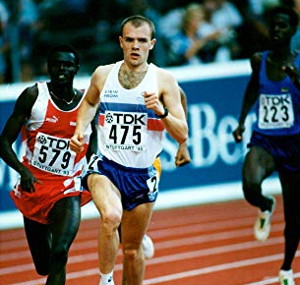 Success stories are normally the only ones that make it into the papers, but that wasn’t the case with the bet that Curtis Robb’s father placed on him in 1989 to win an Olympic medal.
Success stories are normally the only ones that make it into the papers, but that wasn’t the case with the bet that Curtis Robb’s father placed on him in 1989 to win an Olympic medal.
He was offered odds of 500/1 because of the strength of the field in sprinting at the time, but those odds were as low as 8/1 by the time that the 1500 metres final actually got underway. Robb senior bet £500 on his son’s success, only to see him fall short and finish sixth, outside of the medal places.
Having missed out on the Barcelona Olympics in such agonising fashion in 1992, Robb was hopeful that he’d be able to go again four years later when the Olympics were hosted by Atlanta and he had one more chance to win his dad his money.
In the end, however, he failed to make the final and the bet was never fulfilled Interestingly the talented sprinter, who did indeed win a number of big races during his career, was never entirely interested in athletics. Instead he saw his future in medicine, so when injuries began to take their toll he decided to retrain and became a world-class surgeon.